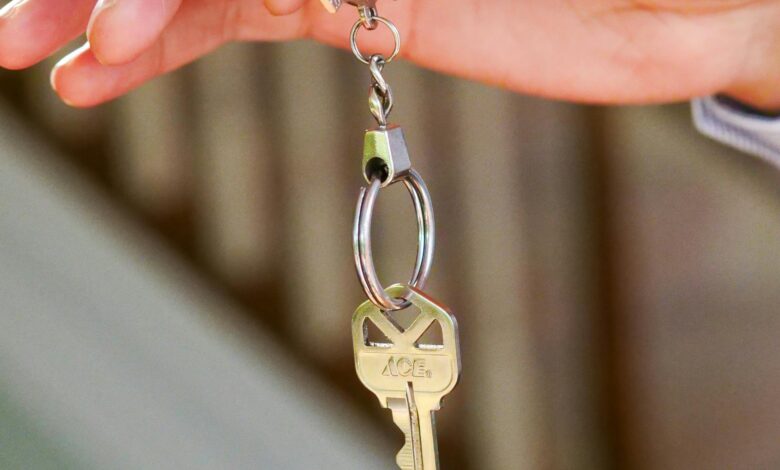How to Negotiate Rent with Your Landlord

Rent is often one of the largest monthly expenses for tenants, and negotiating a better deal can save you significant money over time. While many renters assume that rental prices are non-negotiable, landlords are often open to negotiation—especially in certain situations. Whether you’re signing a new lease, renewing an existing one, or facing financial challenges, this guide will walk you through how to negotiate rent effectively with your landlord.
Why Landlords May Be Open to Negotiation
Before diving into strategies, it’s important to understand why landlords might be willing to negotiate:
- Vacancy Risk : Landlords prefer consistent income and may lower rent to avoid prolonged vacancies.
- Market Conditions : In a competitive rental market with high vacancy rates, landlords may offer discounts to attract tenants.
- Long-Term Tenants : Landlords value reliable, long-term tenants who pay on time and take care of the property.
- Maintenance Costs : Offering a reduced rent can be cheaper than losing a tenant and paying for turnover costs (cleaning, repairs, advertising).
- Economic Challenges : During economic downturns or personal hardships, landlords may be more flexible to retain good tenants.
Understanding these motivations can help you frame your negotiation in a way that appeals to your landlord’s interests.
When to Negotiate Rent
Timing is key when negotiating rent. Here are some opportune moments:
- Before Signing a Lease : This is the best time to negotiate terms, as landlords are motivated to secure a tenant.
- Lease Renewal : When your lease is up for renewal, landlords may be more willing to negotiate to avoid the hassle of finding a new tenant.
- Market Downturns : If rental demand is low in your area, landlords may be more open to lowering rent.
- Financial Hardship : If you’re facing temporary financial difficulties, landlords may agree to a short-term reduction rather than risk losing rent altogether.
- Property Issues : If the property has maintenance problems or outdated features, you can use these as leverage for a discount.
Steps to Negotiate Rent Successfully
1. Research the Market
- Compare Rental Prices : Use platforms like Zillow , Apartments.com , or Rentometer to compare similar properties in your area. Highlight any discrepancies between your rent and market rates.
- Highlight Unique Factors : If your unit has less square footage, fewer amenities, or needs repairs, use this as justification for a lower rent.
2. Build a Strong Relationship
- Landlords are more likely to negotiate with tenants they trust. Pay your rent on time, maintain the property well, and communicate respectfully.
- A positive relationship can make your landlord more inclined to work with you.
3. Prepare Your Case
- Gather evidence to support your request:
- Market data showing lower rents in the area.
- Photos or documentation of needed repairs or outdated features.
- Proof of your reliability as a tenant (e.g., on-time payment history).
- Be ready to explain why a rent reduction benefits both parties (e.g., avoiding vacancy costs).
4. Choose the Right Time
- Avoid bringing up rent negotiations during tense situations, such as after a late payment or dispute.
- Approach the conversation when your landlord is likely to be receptive, such as during lease renewal discussions.
5. Be Polite and Professional
- Frame your request as a win-win situation rather than a demand. For example:
- “I’ve really enjoyed living here and would love to stay long-term. Based on my research, I’ve noticed similar units in the area renting for X amount. Would you consider adjusting the rent to match the market?”
- Avoid emotional appeals or ultimatums, as they can damage the relationship.
6. Offer Alternatives
- If your landlord is hesitant to lower the rent, propose other compromises:
- A longer lease term in exchange for a reduced rate.
- Waiving certain fees (e.g., pet fees, parking fees).
- Including utilities or other perks in the rent.
7. Be Prepared to Walk Away
- If your landlord refuses to negotiate and the rent feels unreasonable, be prepared to explore other options. Having backup plans strengthens your position and shows you’re serious.
What to Say During the Negotiation
Here are some examples of how to phrase your request:
- For New Tenants :
- “I’m really interested in renting this unit, but I’ve found similar properties in the area for slightly lower rates. Would you be open to matching those prices?”
- For Lease Renewals :
- “I’ve been a reliable tenant for the past year, and I’d love to continue living here. However, I’ve noticed that rents in the area have decreased recently. Could we discuss adjusting my rent to reflect current market conditions?”
- For Financial Hardship :
- “Due to some unexpected financial challenges, I’m finding it difficult to meet the current rent. I’d like to discuss a temporary reduction to ensure I can continue paying on time.”
Common Mistakes to Avoid
- Being Too Aggressive : Demanding a lower rent without justification can alienate your landlord.
- Neglecting Research : Failing to back up your request with data weakens your position.
- Overlooking Alternatives : Focusing solely on rent reductions may limit your options. Be open to creative solutions.
- Waiting Until It’s Too Late : Start negotiations well before your lease expires to give both parties time to reach an agreement.
- Ignoring the Relationship : Burning bridges with your landlord can lead to stricter terms or even eviction down the line.
Creative Ways to Reduce Rent
If your landlord isn’t willing to lower the rent outright, consider these alternative strategies:
- Offer to Sign a Longer Lease : Landlords may offer discounts for 18- or 24-month leases to lock in reliable tenants.
- Trade Services for Rent : Offer to handle minor maintenance tasks (e.g., lawn care, painting) in exchange for a reduction.
- Prepay Rent : Some landlords may offer discounts if you pay several months’ rent upfront.
- Bundle Expenses : Ask to include utilities, internet, or parking in the rent for a flat rate.
- Request Upgrades : Instead of a rent reduction, ask for improvements like fresh paint, new appliances, or upgraded fixtures.



